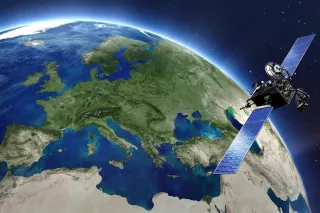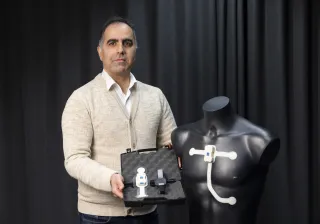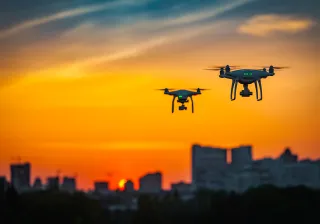Data spaces are expected to revolutionise data sharing and support data sovereignty. This, however, depends on reliable data space connectors. VTT Technical Research Centre of Finland’s data space connector is the 2nd globally to receive IDSA certification, which is an important step towards Europe’s vision of a single market for data.
"We need low-cost, vendor-independent data ecosystems to speed up European data strategy, to reduce the power of the large data platform providers, and to help data owners profit from their own data. Data spaces are the key to all of this,” says Markus Taumberger, Research Team Leader, Advanced Data Spaces at VTT.
The European data strategy aims for a unified data market, promoting data flow to boost business, research, and public service efficiency, enhancing Europe's data economy competitiveness. Enforced by the European Data Act in September 2025, it will standardise fair data access and usage. Current data-sharing methods, relying on third-party servers, are inefficient, complicating live data sharing and requiring numerous copies.
Data spaces will dramatically change our ways of working. Data spaces are decentralised ecosystems where the data remains at the data owner, and the owner can define policies for data use and access for each dataset separately. The owner can also decide only to share specific analytics results based on the data without sharing any raw data. The data is not stored centrally, instead it can be accessed through dedicated software components called data space connectors.
“The model is similar to Google: Google doesn’t store the web page; it just shows enough information about the content, so the user can decide if it’s relevant or not,” says Markus Taumberger, Research Team Leader, Advanced data spaces at VTT.
The International Data Spaces Association (IDSA) has created a standard for secure data exchange, certification, and governance, aiming to become a global standard. VTT’s data space connector received the IDSA certificate in February as the 2nd overall and the 1st research and technology organisation in the world.
“VTT's successful completion of the IDS Certification for their connector highlights their dedication to sovereign and interoperable data sharing. This achievement not only demonstrates VTT's commitment to innovation and trust but also reinforces their position as a reliable partner in the IDS ecosystem, contributing to Finland's leadership in this field”, says Sonia Jimenez, Director Data Space Technology at IDSA.
VTT is paving the way with the 2nd certified dataspace connector in the world
In Finland, the data space development is driven by VTT’s Data Space Innovation Lab in Oulu. VTT’s connector is the only one with OPC UA compliance (Open Platform Communications Unified Architecture), a machine-to-machine communication standard used for industrial automation and manufacturing. This makes the VTT connector especially advanced for IoT applications and data sharing from existing legacy devices. The first use cases are in the manufacturing, energy, and precision farming domains.
“We have everything in place to co-create prototypes and run data spaces with our partners in a technology-neutral, safe environment. The certification is a crucial step for standardising data spaces and speeding up market adoption,” says Markus Taumberger from VTT.
Great potential for energy, agriculture, manufacturing, and many more industries
The data space sector is fragmented, with many regional and domain-specific initiatives underway. The greatest potential lies in industries requiring extensive data utilization, where standardised exchanges can save costs. Data spaces can enhance supply chain transparency, optimise production, and increase public sector efficiency by providing real-time access to necessary data for entities like tax authorities and healthcare. They also offer benefits in energy, improving grid stability and management through real-time interactions between consumers and producers, and in agriculture, boosting precision farming yields via data from drones, smart machinery, and sensors. Collaboration within data spaces, even among competitors, is beneficial.
“Data revolution is on its way, not least due to the upcoming EU regulation. The Finnish industry has some catching up to do, as commercial data space solutions are still very rare. I would encourage Finnish players to start experimenting and utilising data spaces and the IT sector to start developing solutions for organisations. This is an opportunity we cannot afford to miss”, Markus Taumberger says.
For more information:
Markus Taumberger, Research Team Leader, Advanced Data Spaces, [email protected], +358504652474




